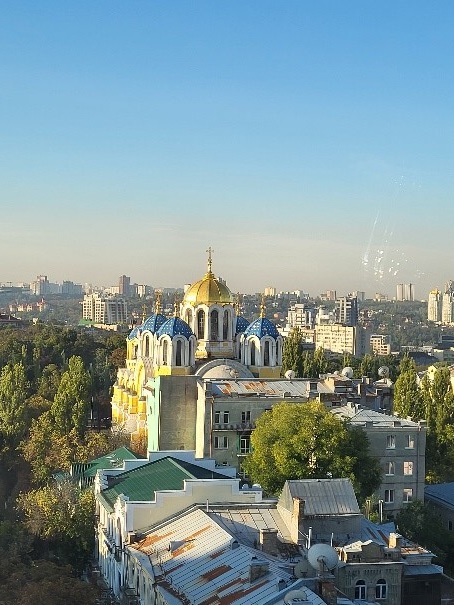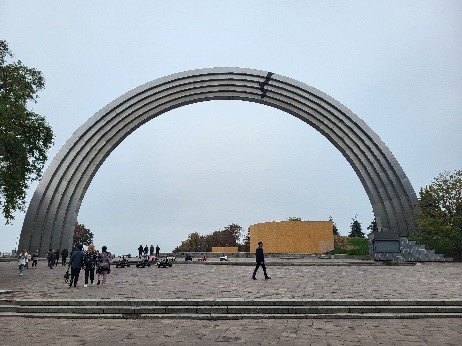Ms. Sofie Lindholms field story from Ukraine
Ukraine's black soils are among the most fertile in the world and the country is one of the world's largest grain exporters. But land mines now occur in areas where people live, and because of it agricultural land will be poisoned for a long time to come. MSB will strenghten Ukraine's capacity to prevent personal injuries and death, while also maintaing its grain production.
View of beautiful Kyiv.
My name is Sofie Lindholm and I work as the Head of Construction for a team in Ukraine. My profession is Civil Engineer and I have had the great opportunity to work in humanitarian missions with MSB since beginning of 2019. My previous missions have been in Central African Republic, Afghanistan and Somalia, working with construction projects for different UN Agencies.
Ukraine is one of the most mined countries in the world right now and the population will live with unexploded ordnance for generations to come. Up to a thousand civilians in Ukraine have this far been killed or maimed by landmines and wire mines, which are banned under international law.
The need of demining is enormous and strengthened capacities and improving training potential for mine action operators in the Ukraine will mitigate the impact of explosive threats against the population and territories for several generations.
The Project is funded by SIDA and the task is to strengthen training facilities for Humanitarian demining units in Ukraine in cooperation with the National Police of Ukraine (NPU) and the State Special Transport Service (SSTS). The project started up in 2024 and the team consist of different types of expertise.
More possible projects to come
Since this mission recently started up, we are in the planning phase and different possible construction projects within the country have been identified and visited. After evaluating the impact and budget, several construction projects are agreed on and in the pipe for both NPU and SSTS. Possible upcoming projects can be anything from renovation of existing facilities to new buildings with different areas of use, both larger and smaller projects. All projects with the same aim, to increase the ability to train more deminers within Ukraine.
The biggest challenge for now is the language barrier. Most Ukrainians don’t speak English and we have to find alternative ways to communicate. Many Ukrainian companies and suppliers don’t answer unknown email addresses and phone numbers because of the fear of cyber-attacks.
The collaboration with our partners works successfully and the response is very much appreciated.
A different kind of mission
The mission here in Ukraine is different compared to the other humanitarian missions I have been in. Ukraine is in the middle of an ongoing war and almost every night the air alarms sounds and you have to be alert and take shelter.
In Ukraine you can live a “normal” life and stay in your own apartment and visit cafés, restaurants and museums in your spare time. Compared to other missions when you often both live and work within the same UN Compound with restricted movements and totally other kind of threats, this is very different.
After travelling thousands of kilometres by car in the country, I realize the size of Ukrainian territory and the gigantic fields they have. More than half of all land in Ukraine are fields where food is grown. Even if Ukraine is in an ongoing war, the country still invests a lot in civil works and gives hope to the population.


